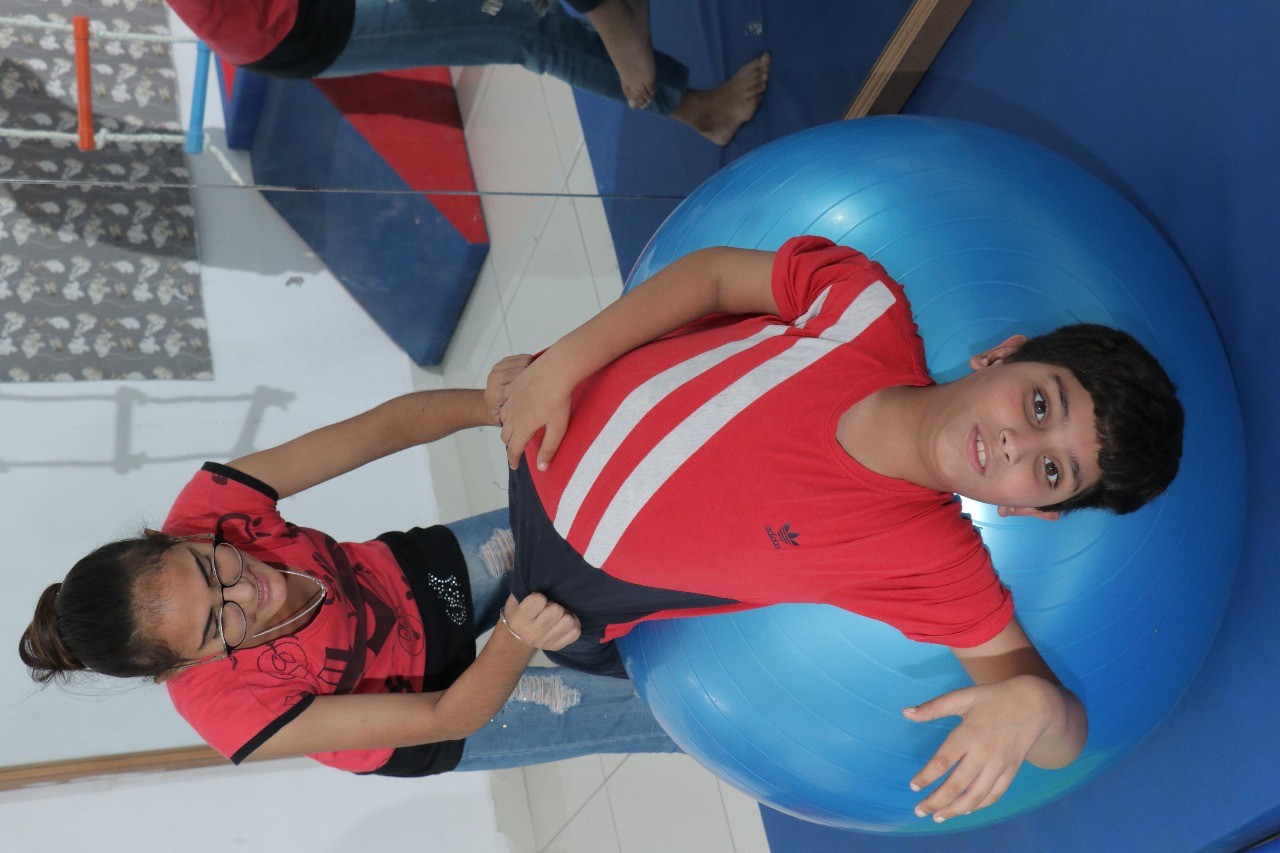Care for Autism has experts catering to major therapeutic sessions that are an essential part of treatment for children with Autistic traits. Therapies benefit special children in several ways. It helps reducing symptoms and improves the chances of a child living a better life. This remedial training shows improved and more impactful results when delivered at the early stages of development.
Core Components
- Applied Behavioural Analysis is a scientific evaluation of behaviour and intervention through well-established methodical approach. It needs all parties involved, families, institutes, trainers, and experts, to work comprehensively. We at Care for Autism evaluate a child’s behaviour in three contexts – How does behaviour work; How environment affects behaviour;and how does learning influence behaviour?
Autistic children tend to behave in a particular manner due to natural reasons. They are unaware or not affected by social norms and their behaviour going against or in accordance with societal rules. It is the task of experts and behaviour analysts to analyze and modify the unwanted gestures of children using techniques and behaviour modification therapies. Everything that relates to the child influences his behaviour environment settings, caretakers, schools, and other people and organizations associated with the child.
Behaviour analysts attempt to decrease problem behaviours, increase language& communication skills, improve attention, focus, social skills, memory, and academics.
Reinforcement schedules are the main mechanisms that make Applied Behaviour Analysis bring out more effective and fast results. Positive reinforcement strengthens the response and repetition while negative discards the same. Each time child displays acceptable behaviour, he gets a reward. Few examples include praise, a toy or book, watching a video. Repetition of same leads to meaningful behaviour change.The principle remains the same, but the applicability of the technique varies. It does not fit into the quote of “one size for all.” Experts need to customize the ABA program as per each learner’s skills, needs, interests, preferences, and family situation. Care for Autism has experts diving deep to know the requirements of the children before they implement the techniques to reach treatment goals.
- Occupational Therapy
Occupational Therapy aims to develop skills in children that help them become more independent and participate in a wide range of daily activities. Occupational therapists address the issues after evaluating the child on various levels. They analyse the capability of a child to learn, play, and take care of himself and the level of interaction he maintains with the environment and his surroundings. They formulate goals based on evaluation and attempts to help the child break through the obstacles that prohibit him from reaching set targets. Depending on the severity of Autism, the goal varies, technique varies. However, the motive remains the same to make the child independent in his activities and ensure learning at every stage.
The occupational therapists use methodologies that involve physical activities, developmental activities, and play activities. The activities aim to develop coordination and body awareness to help interaction and communication.
- Speech Therapy
Speech Therapists aim to help the child speak and interact with others. The therapists use verbal and non-verbal means of communication to make child express their feelings and talk with others. Children with autistic traits often have problems with speech and nonverbal communication. Instead, they may scream, shout, babble with words, or speak robotic way, lacking expressions and emotions.
Therapists look for ways to trigger communication anyways. They may use pictures, prompts, symbols, sign language, or computers initially and then take turns towards verbal conversation and focus on the growing conversation. Therapists attempt children to exchange ideas and understand verbal and nonverbal communication.
- Special Education
Special education is a change in the methodology, the procedure of imparting knowledge, and instructions to children. It involves a range of services that experts tailor to meet the needs of individual kids with disabilities or disorders. The motive of teachers imparting special education remains to help children learn, understand, perceive and comprehend the information that facilitates them to live an independent life.
Experts at Care for Autism design and implement the techniques in a way that helps them to receive more individual attention and specialized instruction. After experts evaluate the individual needs of the children, they develop an Individualized Education Program. Trainers and teachers attempt to accomplish the goals specified. However, as a part of the Special Education Program, we also put efforts to make it possible for children to spend at least part of the school day in a regular classroom. The goal remains to help children learn in the least Restrictive Environment.
- Sports Training
Sport is a physical activity that has tremendous benefits such as endurance, strength, and general fitness. It works as a therapeutic measure for children with disabilities. But it also needs experience and knowledge to select sports activities that will prove beneficial for children with autistic traits. Many sports activities like soccer, basketball, baseball, and football are challenging for autistic children. These activities need communication skills, calculative moves, rapid moves, and managing high and loud noise that may make an autistic child uncomfortable. However, on the other hand, sports activities that involve children independently can do wonders in their growth and development. The list includes bowling, swimming, tennis, and gymnastics. Many children can even perform better in track, cycling, and skating where they have to perform as individual sports but are part of a group.
Experts at Care for Autism dive deep into the child to understand their potential and interest and then involve children in sports activities. Experts consider the child’s sensitivity and attempt to keep the child away from unpleasant experiences like sports activities with a loud noise, irregular whistling, etc. Our trainers work in cooperation with the potentials of the child. We do not hurry at any stage but attempt involvement at every step.



